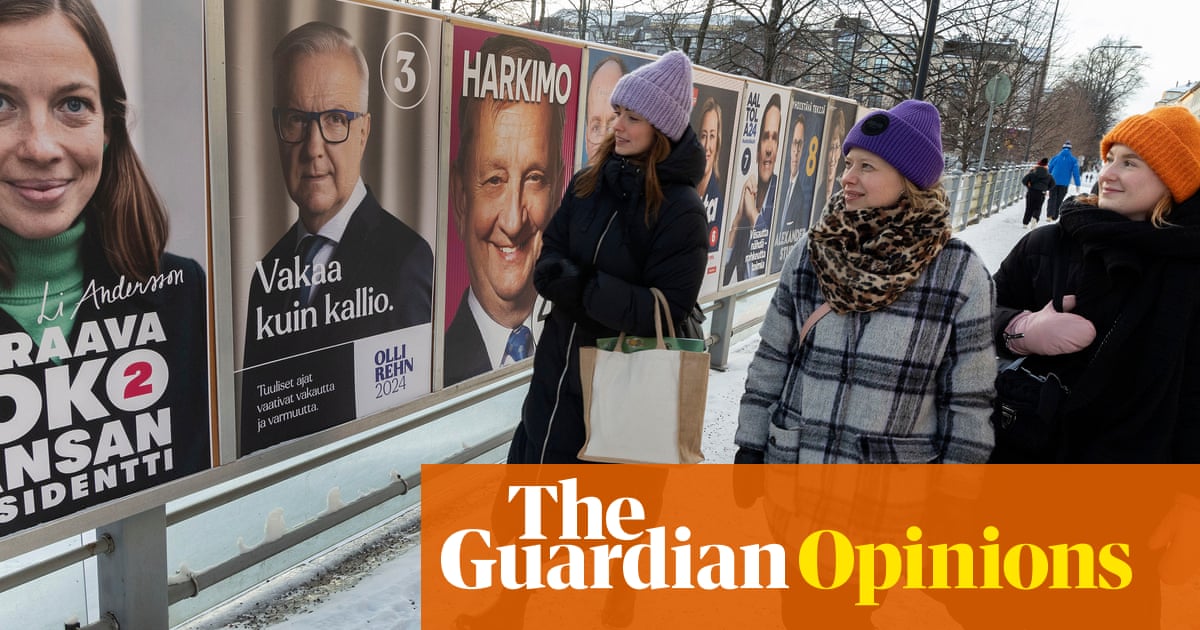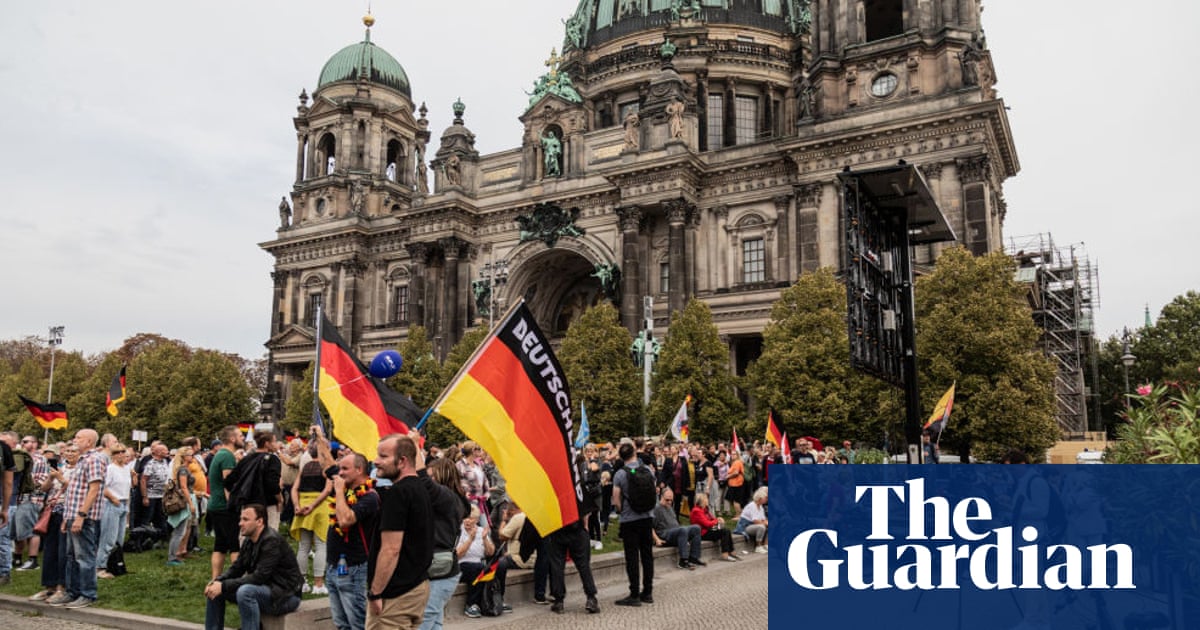
Initially it was the co-opting of the world “remigration” that struck Jurek Skrobala. The term, historically used in social sciences to describe a migrant’s voluntary return to their country of origin, had emerged as a key talking point of a meeting at which high-ranking members of the far-right Alternative für Deutschland (AfD) discussed mass deportation plans.
Days later, as the party’s embrace of “remigration” continued to reverberate across Germany, Skrobala found himself gripped by fear.
“The word had triggered something in me and it was a feeling that I hadn’t expected,” said Skrobala, whose parents moved to Germany from Poland when he was two years old. “My German is perfect. I’m a white, middle-aged man. And yet there was this fear.”
It was a sentiment he thought he had buried long ago. “It’s the fear that you might not belong here after all that,” he told the Guardian. “And the fear of constantly having to prove yourself in Germany in order to have the right to be German.”
Skrobala, an editor at German magazine Der Spiegel, put pen to paper – laying bare his reaction in a highly personal essay (paywall).
“Rightwing extremists want to use their rhetoric, like this ‘remigration’, to hit people in their private spaces, in their personal lives,” he said.
“And I wanted to show they can achieve this. It’s not just a word. There’s a method to this, it’s a kind of verbal violence.”
Reactions to his essay came pouring in. Some took issue with the words he had used, others accused him of exaggerating the threat of the far-right. But several opened up about their own anxieties over the way in which Germany’s politics now felt deeply personal.
“Some of the reactions were people writing me to tell me that they share my fear, or that they can at least relate to it, or that they aren’t sleeping well,” he said. Others shared with him their worries of being left helpless.
It was a hint of the personal toll being exacted by recent events in Germany, where journalists with the investigative outlet Correctiv reported that high-ranking members of the AfD had allegedly discussed plans for the mass expulsion of foreigners and German citizens deemed to be unassimilated if the party secured power.
The reports hit home for many; nearly a quarter of Germany’s population has a migration background, meaning they or their parents migrated to Germany after 1950. The AfD is currently polling second nationwide and leading in three East German states where elections are expected this year.
“We are feeling it,” said Cihan Sinanoğlu, a social scientist who works with the German Centre for Integration and Migration Research.
“A lot of people I speak to are thinking about leaving the country. It’s people like me – born and raised here for one or two or more generations – they’re feeling threatened.”
While he welcomed the more than a million people who have taken to the streets in recent weeks to protest, Sinanoğlu called for the marches to be backed by concrete actions, including pushing back against the rightward drift of mainstream parties and better addressing the issues, such as health care and housing, that have become fodder for the far-right as they seek to gain support.
“My fear is that in four weeks, six weeks or two months, these protests end and nothing has changed,” said Sinanoğlu. “This would be a horror for all of us.”
He has also joined those in Germany who are calling for the AfD to be banned. “We have to understand that this is an attack on all of us, not just racialised people,” he said. “They’re attacking our basic values about equality, justice and democracy.”
News of the AfD meeting, during which ideas were reportedly floated that included deportations to an unnamed state in Northern Africa, were not a surprise for Daniel Gyamerah, the director of the centre for data-driven empowerment, leadership and advocacy. “For us, people of colour, Black people, that’s not new. It’s a shock, but it’s nothing new.”
While the protests were a positive development – “it shows that there’s a level of humanity that you can reach out to,” he said – Gyamerah called on the current coalition government to use its power to do more to safeguard equality and fight racism.
In the wake of the Black Lives Matter protests in Germany, campaigners had been successful in getting the authorities to agree to measures such as renewing anti-discrimination legislation or ensuring public institutions reflect the country’s diversity.
But, more than two years on, none of the measures have been implemented, said Gyamerah.
“Everyone is like ‘Oh what happens if the AfD assumes power?,’” said Gyamerah. “Well, right now they are not in charge and you could actually already do something and build the policies to protect the people from this increasing threat.”
Reports of the meeting laid bare exactly how dire the situation could become, said Sophia Burton, a co-founder of Migration Matters, a Berlin-based non-profit that works to promote more nuanced, evidence-based conversations around migration.
“And I think it also shows that mainstream politicians and political parties need to really step it up, because a lot of them have been kind of parroting some of the same messaging, maybe in slightly nicer words or pandering to AfD voters,” she said.
“And I think that’s almost more scary in some ways, because you expect it from the AfD, but you don’t expect it from the mainstream political parties.”
Under the leadership of chancellor Olaf Scholz, Germany has moved to sharply reduce benefits for asylum seekers and to speed up deportations.
As reports of the meeting continue to rattle German politics, the AfD has responded by saying the policies discussed at the meeting were not party policy and instead accused the government of manipulating the protests in order to distract from its own record of dealing with migration and other pressing matters.
Burton described the use of the term integration as a “euphemism” for the far-right.
“I think what they mean is race and religion, most of the time, not integration,” she said. “Because I’m sure they don’t really care about my white American friend who has been here for over 10 years and who doesn’t speak German.”
She instead called for a transformation of the discourse. “I think you can argue that people like this, like the AfD, people who are spouting anti-democratic, rightwing, extremist, unconstitutional vitriol – they’re the ones who aren’t integrated.”












